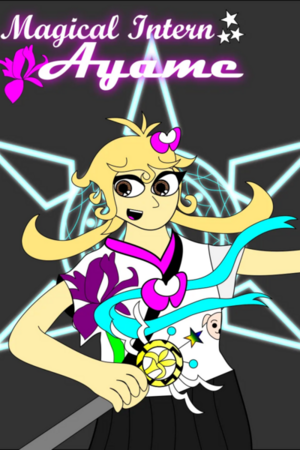Chapter 11:
Back The Way They Came
Travelogue of an Apostate
When Lavenza used to traveled alone, back when meeting another Menuan in the wild was not so uncommon, back when she carried with her a seal of the royal academy, she remembered speaking aloud more. Not to anyone in particular, but she spoke to herself, to nature, to the ever present Endire.
When she began traveling with Deme, Lavenza began keeping a journal, a travelogue to record her thoughts. One might assume then that Lavenza harbored dark, sinister thoughts that belonged nowhere in the company of common, respectable folk. Deme came to this same conclusion rather quickly.
“What are you writing there,” she once asked, “in that journal of yours?”
Deme thought that Lavenza would slam the book closed. She thought she would have sneak a look when the apostate had fallen asleep, sift through Lavenza’s knapsack and figure out how to undo a complicated magical seal.
But Lavenza instead showed her the most recent page.
“I bathe in the light of the Endire,” Deme read. “‘I have known nothing but marble thrones and their magnanimous grace.’ Is this a prayer from your monastery?”
“No. Something the headmistress once told me,” Lavenza replied.
“Did she tell this to everyone?”
“No. Just me.”
Lavenza revisited her journal the night that Old Calvin joined them. Instead of making camp, the blacksmith suggested that they ride through the night aboard the wagon.
“You don’t need to guide your horse?” Lavenza asked.
“Bessa knows where to go,” Old Calvin said. “Besides, the road only goes one way from here to the bottom of the mountains.”
Perhaps the old man just wished to prove himself useful. Lavenza regretted having said he was a frail man. She was not wrong, but she thought she perhaps should have tempered her language.
Deme fell asleep first. She began the night excited to talk more about Rafta, but dozed off before Old Calvin finished recounting a local myth. The old blacksmith paused mid sentence to the sound of snoring.
“When did she…”
“A few minutes ago,” Lavenza whispered, “during the part about the midnight fairies.”
“My old kids fell asleep to that part too,” he grumbled.
Sleep was not long for Old Calvin either. The old man leaned against the carriage window, gave one look at the sisters moon, and closed his eyes.
Lavenza remained awake. The mana feedback still rattled her inside, and she had stopped reciting her incantations to not worry Deme. But there remained other remedies, non-magical remedies that could help her think past the pain.
“Asta kavan.”
From within her personal spatial dimension, Lavenza withdrew her journal and pen. For an old book, there were none of the usual signs of wear on the blank mahogany cover, no thumbprints or dust or mangy dirt stains. Thin folds earmarked the pages where Lavenza preserved her favorite memories.
Her last entry had been from months ago. It was short, written hastily in an almost illegible script at the top of a fresh page.
Pelagia has diminished. Grixys is next.
Lavenza penned an addendum.
I have claimed Grixys. Aphelion is also no more. Until the bitter end, it would seem us mages remain utter fools.
The blank entirety of both pages reminded Lavenza of an empty plot behind the monastery. As a kid, she had promised the headmistress that she would one day plant beautiful flowers there. To this day, it remained an unfertilized patch of dirt. Lavenza ran into the same problem then as she did now, she did not know what colors to cultivate, what seeds to plant.
She attempted to write something else. An old man joined us today, she wrote in trembling ink. It didn’t sound good. She gave up. Lavenza stored her travelogue in the pocket dimension and closed her eyes. Old Calvin’s horse trotted at a soothing pace. Her wooden seat knocked her back like the drumming of a masseuse and its rhythm lulled her to sleep.
It was midday when Lavenza awoke. She was alone in the carriage, and they had stopped somewhere along the road. There were voices outside, which prompted Lavenza to reach for her staff. She ducked her head through the open side and spotted a familiar forge.
Old Calvin’s wagon waited behind another carriage pulled by two meek horses. A middle aged woman held open the trunk of the carriage for a stout brawny man who lugged heavy crates into the back. Next to the forge, Deme and Old Calvin stood with the blacksmith's wife, Ariadne, who, despite the fact that they had only been gone for a day, carried a belly that seemed twice as large as before. Lavenza dismounted from their wagon.
“Venz!” Deme waved. “Guess who it is?”
“Is that your husband?” Lavenza asked.
“'Tis the strangest thing!” Ariadne laughed. “I can’t even explain it properly. Samuel! Come here.”
Ariadne’s husband dropped one of the crates at his feet. Samuel appeared the kind of man dressed just for his profession. Like his wife, he wore a bandana around his hair. Hammers, tongs, and spare nails occupied a tool belt strapped over his waist and chest. He waved at them with hands fitted in thick leather gloves.
“My wife mentioned you two passed through here,” Samuel said. He looked at Old Calvin. “What about you?”
“I’m just tagging along,” the old blacksmith shrugged.
“No worries. It’s all the same to me,” Samuel nodded. “You all coming from the north? From the mountain pass?”
“Somewhat,” Lavenza answered.
“Then you’re lucky,” Samuel said. “A winter storm blocked the path for months. The horses and Sister Caroline over there almost froze to death. A few more days and we might have starved too.”
“You crossed the mountains to fetch horses?” Lavenza asked. “They don’t traverse the northern pass very well.”
“I found that out the hard way,” Samuel frowned. “But Ostigan’s lord pillaged what was left of his estate and the surrounding farms. I had no other choice. But yesterday, the storm stopped all of a sudden. I knew it was over when the horses started moving again.”
“We can go to Centa Muis now,” Ariadne threw her arms around her husband. “The whole nightmare’s almost over.”
Deme nudged Lavenza around the waist. The child looked at her with an ear splitting grin.
“I’m happy for you two,” Lavenza bowed. “Deme. Blacksmith.”
The apostate returned to their carriage and motioned for the child and Old Calvin to follow her.
“Centa Muis is still at least a week’s journey from here,” Lavenza said.
“We should at least stay until Ariadne and them finish packing their things,” Deme said. “Then we’ll travel together.”
“I’m with the child,” Old Calvin said. “The roads surely aren’t safe. It would be better for us to leave with them.”
“Yes,” Lavenza sighed. “I’m not so cruel as to abandon someone carrying an unborn child.”
“You thought the husband had done just that,” Deme grinned.
“If it pleases you to hear it from my own mouth, I was wrong,” Lavenza snapped. “Now, leave me be for a while. I need some more rest. You can wake me when we’ve begun to move.”
They didn’t move until come evening. Deme and Old Calvin found ways to help Ariadne and Samuel. Deme ferried the blacksmith's tools into the carriage, then moved out unnecessary items when it became obvious that Samuel had overpacked. Old Calvin took a few dozen trips to the well and fetched water for the horses, who could not leave even if they had finished packing, for the animals were weak and thirsty.
Lavenza did not move once from the carriage. It was neither lethargy or the feedback from her own truth incantation that kept her from leaving. It was something else, some imperceivable fear or anxiety.
Several times, to pass the time, Lavenza fetched her journal and pen from her pocket dimension. She hoped to write something, an observation perhaps, of her idleness and the curious behavior of others, of humans, whose immutable faith in others could both be rewarded or easily exploited.
But there was nothing. She could not write. She could not write anything at all.




Please sign in to leave a comment.